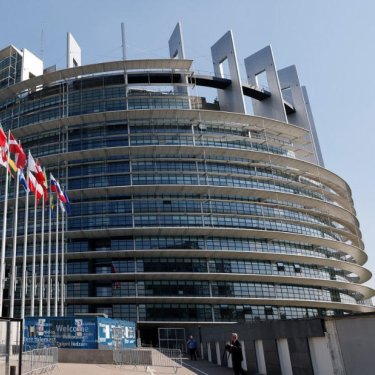EU governments urged to support European Parliament’s EMFA version

As negotiations on the proposed European Media Freedom Act (EMFA) enter the final straight, Reporters Without Borders (RSF) calls on the Council of the European Union to accept the EMFA version that the European Parliament approved today, which safeguards journalistic freedom.
A year after the European Commission drafted unprecedented media freedom legislation in the form of the proposed EMFA in September 2022, in response to growing violations, MEPs have voted by a big majority (448 in favour, 102 against and 75 abstentions) for a version of the EMFA that is much more protective than the one approved in June by the Council of the EU (which represents the governments of EU member states).
The two bodies, Parliament and Council, must now agree on a joint version. But one provision in particular will be the subject of fierce discussion. It concerns the surveillance of journalists and the confidentiality of their sources. In this regard, the Parliament has approved safeguards that do not exist in the legislation of many European countries including France.
“Defence of national security must not be used as a blank check for allowing the surveillance of journalists and for opening the way to all kinds of abuses, as seen in the recent cases of surveillance in Greece and Hungary using Pegasus and Predator spyware, as well as French journalist Ariane Lavrilleux’s detention for 39 hours and the search of her home. We call on EU member states to support the safeguards adopted by the European Parliament.
At France’s request, the Council of the EU adopted a version of the EMFA in June that says that EU provisions protecting journalists are “without prejudice to the responsibility of member states to safeguard national security.” As some governments are clearly trying to protect themselves from interference in the field of national security, the challenge is therefore to maintain the level of protection in the Parliament's version.
The version approved by the European Parliament today guarantees the confidentiality of journalists’ sources. It prohibits EU member states, EU institutions and private-sector entities from forcing media outlets to reveal information about their sources. This protection applies to media employees, members of their families and anyone who is part of their professional network. They cannot be detained, sanctioned or searched and their equipment cannot be confiscated. It also prohibits EU member states, institutions and private-sector entities from accessing journalists’ encrypted content and from placing journalists under any kind of surveillance, including by means of spyware.
Any of these actions is only possible if expressly authorised by an independent judicial authority and only if these actions do not allow the confidentiality of journalists’ sources to be violated. They are also subject to other strict conditions: they must be the only way for the authorities to find the needed information, and this information must in no way be linked to “the professional activity of a media service provider and its employees.” And it must be possible to appeal against a violation of the confidentiality of sources.
Supporting reliable online news sources
There is another provision, Article 17, that will be at the focus of negotiations between Parliament and the Council this autumn. It concerns the moderation of media content by online platforms. Parliament has provided for safeguards to prevent platforms from arbitrarily deleting or restricting articles. If a platform considers that the content of a media outlet violates its terms of use, it must notify the main parties concerned 24 hours before imposing any restriction, in order to give them time to defend the content.
The EMFA’s methods for combating illicit content and disinformation are not, however, fully satisfactory. Its restrictive measures only come into play once content is already online. Furthermore, content that constitutes disinformation is often not illegal, or its illegality is very hard to establish. Determining the legality of content, proving a lack of veracity and removing false content are all extremely complicated. During the final phase of negotiations, RSF therefore calls on the European Parliament and the Council of the EU to make it obligatory for online platforms to amplify reliable journalistic news sources. This would not only help to combat disinformation but also promote media sustainability.
